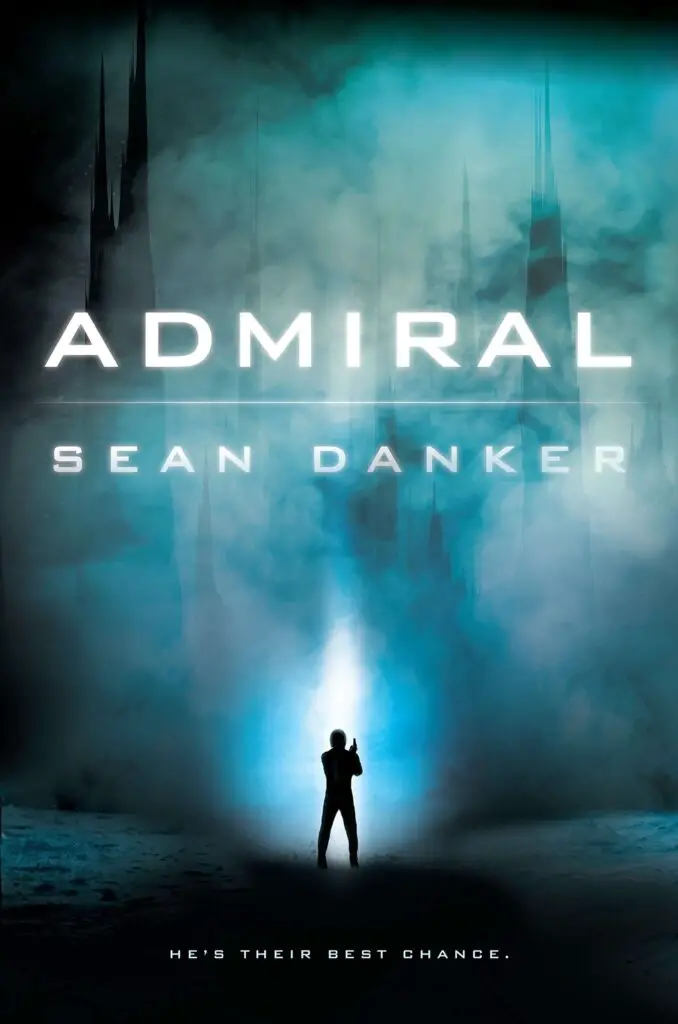Admiral, by Sean Danker

Admiral follows the thoughts and actions of an unnamed central character (known only as the Admiral), who awakens out of stasis due to a malfunction (or possible sabotage) of his sleeper pod; he is the last of four specialized soldiers slated for rendezvous with the Julian, the Evagardian Empire’s newly launched flagship. According to the designation on his sleeper pod, he’s an Imperial Admiral, but he’s far too young to be an Imperial Admiral. Plus, he’s not in uniform and appears unfamiliar with military protocol, which becomes apparent from the reactions of the other three who also were booted out of stasis along with him – they are recent graduates of the Academy, and the Julian was to be their first assignment.
To top it all off, the ship they are on is not even Evagardian, but rather Ganraen in design. The Ganraen Commonwealth had just signed a peace treaty with the Evagardian Empire, after a crushing defeat from the Evagardian navy, but this is a trade vessel, not a military ship. And it’s on emergency power. There is no sign of its crew, and no clue as to how it’s been compromised, or why.
They don’t know where they are. They don’t know how they got there. They don’t know what they’re up against. They were put in stasis on an Evagardian station and expected to wake up on the Julian. Nothing makes sense.
And then things really get bad.
This novel has a lot going for it: the characters (great characters!), the setting, the level of technical detail involved, the cascade of threats, the internal as well as external tensions. But what really impressed me was not what we know, but what we don’t know – not what we learn, but how we learn it.
Having the story told completely from the viewpoint of a command character who has reasons for keeping his identity a secret while still needing to instill obedience and trust in a raw, untried, talented yet naive group of recent cadets (one of whom is openly hostile), allows for the narrative to remain tightly focused at its core, and yet gives the main character leeway to learn about the other three, and place them in their proper alignment against the familiar political and societal structure (and therefore, we learn as well).
It also helps that the main character is, well, not exactly hung up on established protocols and proper procedure, so when one of the others on the team questions him, or even corrects him, we also learn about what is expected, what is considered normal, filtered through the lens of someone who appears to be a kind of maverick. The flip side of this – and what also helps to keep it interesting – is that since the “Admiral” already knows why he must maintain anonymity, he never explains it to us. We are as much in the dark as the others.
Fun stuff, that.
There are a few times where what we don’t know is confounding, but no more than what the narrative can bear. I found myself devouring this novel at breakneck speed, and enjoying every minute of it. Without going into too much detail (so as not to spoil anything), author Danker is able to take stock and trade situations and threats, and elevate them from the expected to the truly imaginative, even extraordinary. Some of his … renderings has me marveling even now, long after I’ve turned the final page.
Fun stuff, indeed.
—Sharon Browning

